


© 2024. MPT Agency | MusicPromoToday
As a musician, one of the most crucial aspects of your career is getting your music heard by as many people as possible. In today’s digital landscape, media advertising offers an incredible opportunity to reach a global audience and create a buzz around your music release.
In this guide, we will explore the best media advertising channels for musicians, enabling you to maximize your exposure and increase the chances of success for your music release.
In the digital age, music streaming platforms have revolutionized the way we consume music. Utilizing platforms like Spotify, Apple Music, and Tidal allows you to target an audience of avid music enthusiasts.
With their extensive user base and sophisticated algorithms, these platforms offer opportunities for playlist placements, featured artist spotlights, and targeted ad campaigns. By harnessing the power of music streaming platforms, you can connect directly with your target audience and gain valuable exposure.
Social media has become an indispensable tool for musicians to connect with their fanbase and promote their music. Platforms like Facebook, Instagram, and Twitter offer advertising options that enable you to reach a vast audience based on demographics, interests, and behaviors.
Through creative and engaging ad campaigns, you can build excitement around your music release, share behind-the-scenes content, and encourage fan interaction. Additionally, collaborating with popular social media influencers in the music industry can amplify your reach and enhance your credibility.
YouTube is not just a platform for watching music videos; it is also a powerful media advertising channel for musicians.
By creating visually compelling and shareable content, such as music videos, lyric videos, and behind-the-scenes footage, you can engage your audience on a deeper level. YouTube offers various advertising options, including pre-roll ads, in-stream ads, and sponsored content. Leveraging YouTube’s massive user base and its ability to target specific demographics, you can significantly boost the visibility of your music release.
Influencer marketing has emerged as a highly effective strategy for musicians to promote their music. Collaborating with influential bloggers, vloggers, and social media personalities who have a significant following in the music niche can expose your music to their dedicated fanbase.
This form of advertising allows you to tap into their credibility and loyal audience, generating buzz and increasing the chances of your music release going viral. It’s essential to identify influencers whose style aligns with your music genre and brand image for maximum impact.
Music blogs and online publications dedicated to music reviews and industry news are excellent platforms for promoting your music release. Submitting your music for reviews or features can provide exposure to a targeted audience of music enthusiasts and industry professionals.
It’s crucial to research and reach out to relevant blogs and publications that cater to your music genre. A positive review or feature on respected music platforms can significantly enhance your credibility and attract the attention of industry insiders.
Email marketing remains a powerful tool for musicians to engage with their fanbase on a personal level. By building an email list of dedicated fans and supporters, you can directly communicate updates about your music release, exclusive content, and upcoming shows. Craft compelling newsletters that provide value to your subscribers, such as sneak peeks, behind-the-scenes stories, or limited-edition merchandise.
Email marketing allows you to nurture a strong connection with your fans and convert them into loyal supporters of your music.
In the competitive music industry, utilizing the best media advertising channels is essential for musicians to amplify their music release and connect with their target audience. By leveraging music streaming platforms, social media advertising, YouTube, influencer marketing, music blogs, and email marketing, musicians can maximize their exposure, build a dedicated fanbase, and increase the chances of their music release’s success. Embrace the power of media advertising and let your music be heard by the world.
Music Streaming Platforms: Online platforms that allow users to listen to music on-demand.
Social Media Advertising: Promoting and marketing music through social media platforms like Facebook, Instagram, and Twitter.
YouTube: A video-sharing platform where musicians can upload and promote their music videos.
Influencer Marketing: Collaborating with influential individuals in the music industry to promote music releases.
Music Blogs and Online Publications: Websites dedicated to music reviews, news, and features.
Email Marketing: Using email newsletters to communicate directly with fans and promote music releases.
Media Advertising: Promoting and advertising music through various channels and platforms to reach a wider audience.
Music Release: The launch and distribution of new music, including singles, albums, or EPs.
Buzz: Generating excitement and attention around a music release through marketing and promotional efforts.
Playlist Placements: Getting music featured on curated playlists on streaming platforms.
Featured Artist Spotlights: Highlighting a musician or band in a prominent position on a streaming platform or music-related content.
Demographics: Characteristics of a specific audience, such as age, gender, location, and interests.
Behind-the-Scenes: Providing a glimpse into the process and behind-the-scenes moments of creating music.
Credibility: The trust and believability associated with a musician or their music.
Viral: Achieving widespread popularity and rapid sharing of content, often through social media.
Fanbase: The group of dedicated and loyal fans who support a musician or band.
Metrics: Quantitative data used to measure the effectiveness and success of advertising campaigns.
Engagement Rates: The level of interaction and involvement from the audience, such as likes, comments, and shares.
Click-Through Rates: The percentage of people who click on an advertisement after viewing it.
Conversions: The number of desired actions taken by the audience, such as purchasing music or signing up for a mailing list.
Fan Interaction: Encouraging and facilitating engagement and communication between musicians and their fans.
Niche: A specific and specialized segment of the music industry or audience.
Email List: A collection of email addresses from fans and supporters who have opted to receive updates and news.
Newsletter: Periodic emails sent to subscribers, providing updates, exclusive content, and promotional offers.
Sneak Peeks: Exclusive previews or glimpses of upcoming music or projects.
CTA (Call to Action): A prompt or instruction to encourage the audience to take a specific action, such as downloading a song or attending a concert.
Media advertising provides musicians with the opportunity to reach a wider audience, increase exposure for their music release, and build a loyal fanbase. It helps create buzz, attract industry attention, and ultimately boost the chances of success in the highly competitive music industry.
Yes, it’s essential for musicians to identify the media advertising channels that align with their target audience and music genre. By focusing on platforms where their target audience spends the most time, musicians can optimize their advertising efforts and achieve maximum impact.
Absolutely! Many media advertising channels offer cost-effective options, allowing musicians to reach their audience even with a limited budget. Social media advertising, influencer collaborations, and targeted email marketing are excellent choices for musicians with smaller budgets.
To measure the effectiveness of media advertising campaigns, musicians can track key metrics such as engagement rates, click-through rates, conversions, and the growth of their fanbase. Analyzing these metrics will provide insights into the success and impact of their advertising efforts.
Yes, social media advertising allows musicians to engage with their fans on a personal level, fostering a sense of connection and loyalty. By responding to comments, running interactive campaigns, and sharing exclusive content, musicians can build a strong and dedicated fanbase.
Collaborating with influencers can significantly amplify a musician’s reach and exposure. Influencers have established credibility and a dedicated following, making their endorsement of your music release valuable. Partnering with influencers in the music industry can expand your fanbase and attract industry attention.
Serving Artists, Labels and Agencies since 2012
CONTACT US:
CALL US:
+646 650 5557




© 2024. MPT Agency | MusicPromoToday